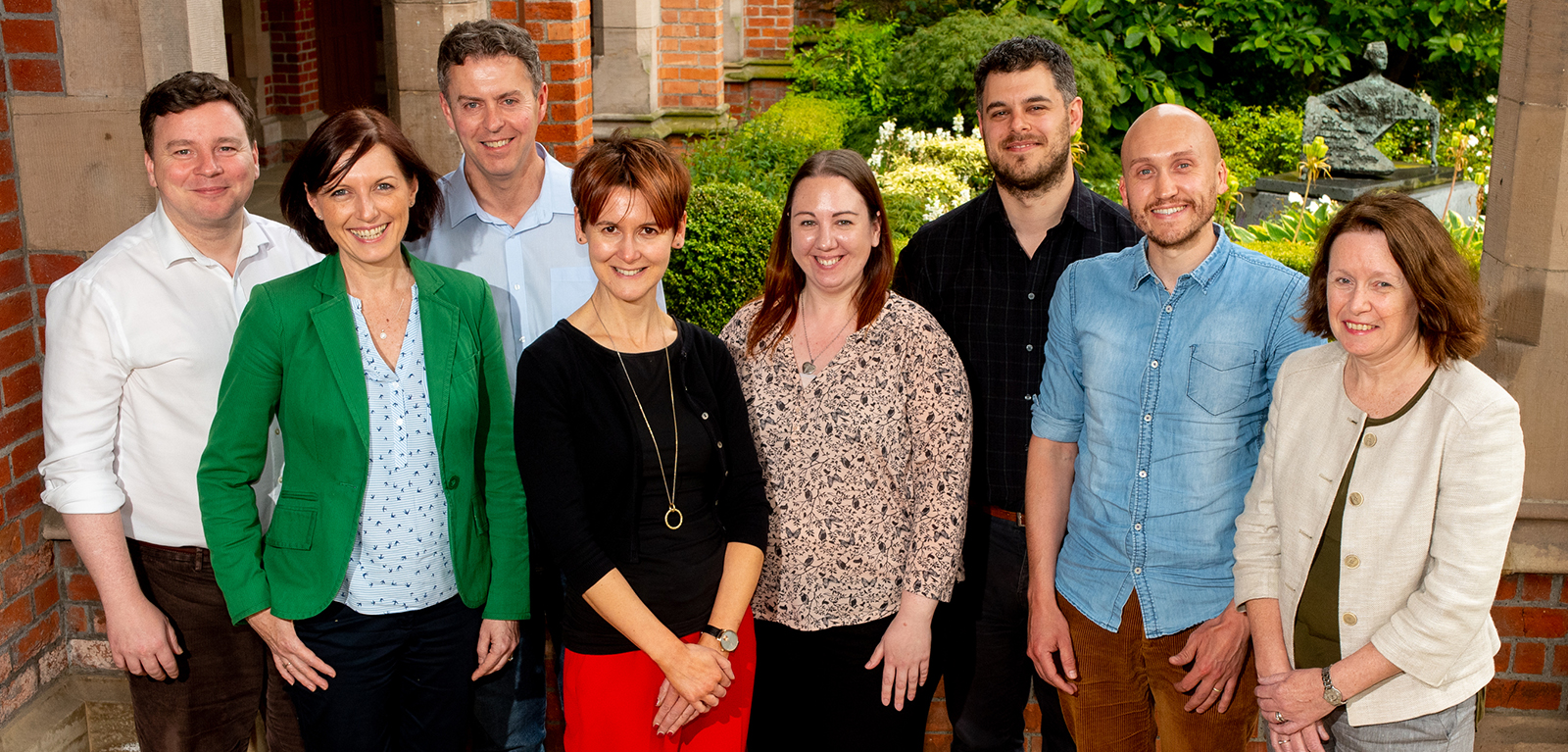BLOG: Preserving your well-being and mental health during the Coronavirus crisis
"If you are feeling stressed, anxious, scared or even frustrated right now, then you aren’t alone."

A blog by the Queen's University Belfast Clinical Psychology Training team
If you are feeling stressed, anxious, scared or even frustrated right now, then you aren’t alone.
Given the situation with COVID-19, and the changes it has brought to all our lives - including to how we study, work, socialize - many of us are experiencing these emotions.
However, even within this difficult situation and the emotions that naturally come with it, there still are many things that we can do to maintain our well-being. If you are on Twitter, Instagram or Facebook, you might have noticed the emergence of online resources with suggestions for managing one’s well-being or mental health in the midst of COVID-19. We are a group of clinical psychologists who work at Queen’s, and we wanted to write this blog to signpost to some ideas and resources that we think are useful for maintaining well-being.
Take notice of your emotions
If you are struggling at the moment, then the best place to start is perhaps by noticing the following: that you are a human being and you will have emotional responses when challenging things happen in your life, and that’s OK.
The current situation has quickly emerged into our lives and is affecting what we usually do and how we usually do it; it has introduced some uncertainty about what the near future will hold. There are many different and very normal emotional responses to such a situation.
For example, if you feel anxious or scared, then I invite you to notice that this makes sense: your mind is doing what it naturally does in times of uncertainty – trying to find solutions and answers that will keep you safe, and/or energising you to escape from danger.
If you feel angry and frustrated, then this too makes sense: the current situation may have affected some of your important plans (for example, changes in exams or assessments, cancelled holidays, graduations, weddings, uncertainty about job interviews) and the activities you usually employ to let off steam (such as gym, parties, concerts, travel) may not be available.
While varied emotional responses are normal, you might notice that when these occur, it still is possible to make choices that make life better. Some of the things we do - for example, worrying, binge news-watching, drinking a bit more than usual - have the potential to worsen our well-being in the long-term; while other things (contacting others, exercise, focusing on doing what’s in our control) might make life better.
So the first thing you might want to try is to approach your emotions and thoughts as ongoing responses to an unfolding situation. Your mind is doing its job. From here, you might see some possible options and choices regarding things you can do to make life a bit better.
So what can we do when we feel overwhelmed?
People from around the world have been developing resources describing ways to maintain well-being during the COVID-19 situation. Below we list a few we think could be helpful. Before we introduce these, here is a way to approach the links below, and indeed, any that you encounter online that offer advice on ways to keep well.
- Check who has written the article: you can be confident that the material is based on expert advice if it comes from a reputable source, such as Health and Social Care in Northern Ireland (HSC), the National Health Service (NHS) or the World Health Organisation (WHO). Also, if the article is written by a registered mental health professional (for example, clinical psychologist, counselling psychologist, psychiatrist), then it is more likely to be informed by research and clinical experience.
- When considering trying something new, ask yourself: ‘has something like this worked for me in the past?’ Straightforward advice I know, but if it has worked in the past then it may be worth trying again now.
When trying something new to support your well-being, keep tracking whether it actually is helping. Different people respond to different methods for managing mood. To find out what works for you, keep checking in on how your life is when you use a new method; notice if you are becoming calmer or are better focused on your work and/or loved ones.
Resources we think could be helpful for keeping well at the moment:
- Brief and general advice on maintaining well-being is available from the HSC (Northern Trust)
- Brief and clear tips and advice (taking COVID-19 into account) from the Mental Health Foundation
- The Recovery College Online have a course on ‘Coping during the pandemic’that goes into slightly more detail than the above resources on ways to cope with strong emotions and is worth a read - in particular the parts that describe ways to improve sleep and the importance of exercise and connecting with others (activities like these are vital for maintaining psychological well-being)
- Suggestions from Berkeley on ways to make life more meaningful in the current situation. You might want to have a read and see if there is anything that resonates with you
- 12 actions for improving your well-being from Action for Happiness
- A video by Dr Russ Harris, an Australian doctor with a special interest in mindfulness that outlines a general way of approaching the current situation:
If you are worried and anxious:
- NHS Lanarkshire in Scotland has produced a good resource to start with if you are struggling with stress and anxiety It contain further links to breathing and mindfulness/centring exercises that you may find useful.
- To add this, here is a guided relaxation exercise by Dr David McCormack, a member of our clinical psychology team at Queen’s, that might help you to find calm.
Mindfulness:
Many of the resources above mention mindfulness, so we thought it might be useful to discuss mindfulness in a bit more detail.
A good definition of mindfulness is “Consciously bringing your awareness to your here-and-now experience, with openness, receptiveness and interest” (Harris, ACT Made Simple, 2007).
Having read this, you might see how mindfulness is a quite different state from worry. When mindful, our attention is on the now, instead of in our heads – in an awful past of future. Our mindful aim is simply to be interested in what is happening now – instead of trying to work out what is going to happen in the future in order to remove the discomfort that comes with uncertainty.
If you would like to practice mindfulness exercises, below are a few apps you may find useful – each have free content:
If you are new to mindfulness, then it is important to be aware: a proportion of people find that centring and mindfulness exercises increase their anxiety. So, if you decide to try these, then begin small and keep track of whether mindfulness is helping or not.
Finally, if mindfulness exercises aren’t really your thing but you but want to practice being present, then here is a suggestion of something to try: https://www.psychologytoday.com/gb/blog/get-out-your-mind/201904/don-t-meditation-try-instead
One final point: Do things that are meaningful or make your life better
Focusing on doing things you find meaningful or that make your life better is a theme that runs through many of the resources we have outlined. Even within the COVID-19 situation, there are opportunities to begin doing new things that are meaningful. These do not need to comprise massive changes: finally starting that dusty old copy of Ulysses that has been staring at you from the bookshelf for the last tenyears, doing one hour of online Zumba each day or ‘giving up all sugar’. The small things – contacting old friends, an extra call a week to your mum, adhering to the COVID guidelines from the government – can have big consequences for you and us all if followed consistently.
Even the most seemingly ordinary or small acts can make a big difference.
